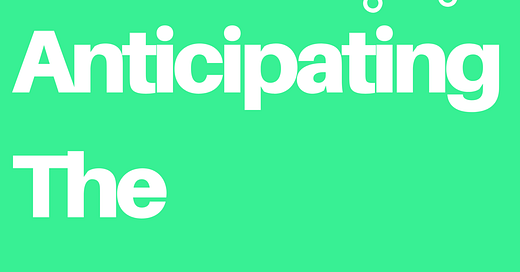- RSJ
Chaitanya Tamhane’s debut feature Court (2014) convinced me about two things. One, here was a global talent whose cinema will make us proud in future. He did that and more with his next feature - The Disciple (2020). I knew of the precocious Tamhane back from 2007-08 when his knowledge and analysis of global cinema of all stripes used to leave us awestruck. We were no mugs about cinema ourselves. But he was different. Next level as they say.
That aside, it is the second point that I was left with at the end of Court that has stayed with me for long.
Ruka Hua Faisla
But to back up a bit, here’s what Court is about.
It begins with a day in the life of an elderly Dalit activist, Narayan: a writer of protest songs and a teacher for poor kids living in the slums. A simple man of deep conviction he has devoted his life to causes that are dear to him. Soon, he is arrested because a manhole worker died by suicide after listening to one of his angst-ridden songs that seemingly abetted it.
The trial is a Kafkaesque nightmare. It is clear that the manhole worker died because of inhaling the poisonous sewage gases. This isn’t anything new. The plight of these workers who go into the manholes without any safety equipment has been documented many times over. Yet, the public prosecutor and the state produce fake witnesses who testify against Narayan and bring up bizarre new charges like possession of illegal books (there’s one on Yoga) to make it watertight case against him. The state can’t accept the man died because of the abominable work conditions.
Instead it must have been that old mass murderer over the ages - poetry.
The autopsy report and the testimony of the wife nail the lie. This was no suicide. Meanwhile Narayan’s health continues to deteriorate while he is in custody. The judge grants him a bail for a surety amount of Rs. 1 Lac. Good news? Wait. The next day Narayan is arrested again on another trumped up charge. This time it is about sedition and for waging a war against the state. The case is back to the same judge who tells them to appeal to the High Court.
The film ends with what appears like a complete non sequitur.
We see Narayan on bail going back to teaching the poor kids in the slums. And then there’s a surreal bit to end the film. The judge and his family go out for a day long picnic. They travel in a minibus singing songs and playing antakshari. We see members of the family seek the judge’s counsel on different issues. The judge is like that old uncle we all know. He dispenses vacuous, outdated advice. The last scene has the judge dozing off on a bench mid-afternoon while the children play cricket nearby. A ball hits the judge mildly. He wakes up and promptly slaps the boy who has come to pick it up.
The film ends.
A Reflection Of Our Society
There are multiple themes apparent in the Court: the vengeful state, an indifferent judicial system, the drudgery of bureaucratic work, the idealism of an aging activist and the tenacity of a young advocate who is representing him. However, I was struck by that last scene. What was that about?
Over the last few years, I have thought about that scene often. Why?
Well, let me offer you three recent newspaper pieces.
First, here’s Shekhar Gupta in The Print on “how our judiciary is murdering the principle of ‘bail, not jail’ routinely”:
“It is a challenge to decide which institution has declined over the recent decades, the police or the judiciary. But today, if you are someone the powers that be don’t like, they can easily find police officers to file a case with serious sections from the IPC, never mind if they don’t have a shred (or iota, which our judges prefer in their orders) of evidence.
You might still think, certainly, they still have to produce me before a magistrate who would easily see through the police case that’s thinner on evidence than Coronil, if even that. And once the magistrate sees that, the order will be determined by that immortal line from the legendary late Justice V.R. Krishna Iyer: Rule is bail, not jail.
Contrary to our belief, that Krishna Iyer line wasn’t immortal. If anything, it’s been murdered and cremated routinely, and at least three times in recent days. Check the cases of Munawar Faruqui, Nodeep Kaur and Disha Ravi. Our choice of three very young and vocal people is a conscious one.”
Or, read this from The Economic Times:
“Chief Justice of India triggered a controversy on Monday with his remarks in two cases. In one case, he asked a man accused of rape in a relationship with a 16-year-old, whether he was willing to marry the complainant. The man faces accusations of rape, cheating and criminal intimidation, besides charges under the stringent Pocso Act designed to prevent exploitation of children.
The CJI’s remark was panned on social media.
In another case, the CJI asked if a man’s sexual conduct, however brutal, could attract rape charges if it was made by his partner.”
Or, how about this:
“Justice Pushpa Ganediwala recently acquitted a man accused of groping a 12-year old girl's breast because he did not make skin-to-skin contact, and days earlier, ruled that holding the hands of a five-year-old girl and unzipping pants do not amount to 'sexual assault' under the POCSO Act.
In two other judgments, she acquitted two persons accused of raping minor girls after noting that the testimony of the victims did not inspire confidence to fix criminal liability on the accused persons.
"No doubt, the testimony of the prosecutrix (victim) is sufficient for conviction of the accused. However, the same ought to inspire confidence of this Court. It ought to be of sterling quality, Justice Pushpa Ganediwala said in one of the judgments.”
I could go on and on but I think you get my drift.
A Good Citizen?
Why have things turned this way over the past few years?
I have 3 reasons to offer. Firstly, we draw our bureaucrats and our judges from our society. Our society has progressed on liberal axis over the past seventy years. But not enough. It is largely illiberal. Secondly, society was illiberal in the past too. But there was no incentive for those running it to be illiberal while interpreting the law or administering a rule. Going by the evidence above, this seems to have changed as the state has turned illiberal. When incentive changes, behaviour changes. Thirdly, we seem to be sorely missing virtue in public life. In the absence of it we have deified certain institutions where virtue is often visible. Like the armed forces or the judiciary. There’s always a price to pay for deification without adequate scrutiny.
That brings me back to that last scene of the Court. I seem to get it a tad better these days.
Apart from the many other themes apparent in the film, the one that was running in the subterranean was that old question of Aristotle - who is a good citizen?
Is an old activist fighting the good fight against the state, writing revolutionary poems and organising the downtrodden to demand for their rights, a good citizen? Or is a learned judge with the majesty of law by his side, lording it over a court where the witnesses are fabricated and charges are often false, a good citizen? The society and the state have an answer. But is that the truth?
Tamhane answers this in that brilliant coda to his film. The activist whom the state considers a threat is busy teaching kids despite his troubles while the judge with no care in the world wastes his time in a frivolous picnic and slaps a boy who disturbs his afternoon siesta.
Court was released in 2014. Like all good art it is timeless.











Share this post